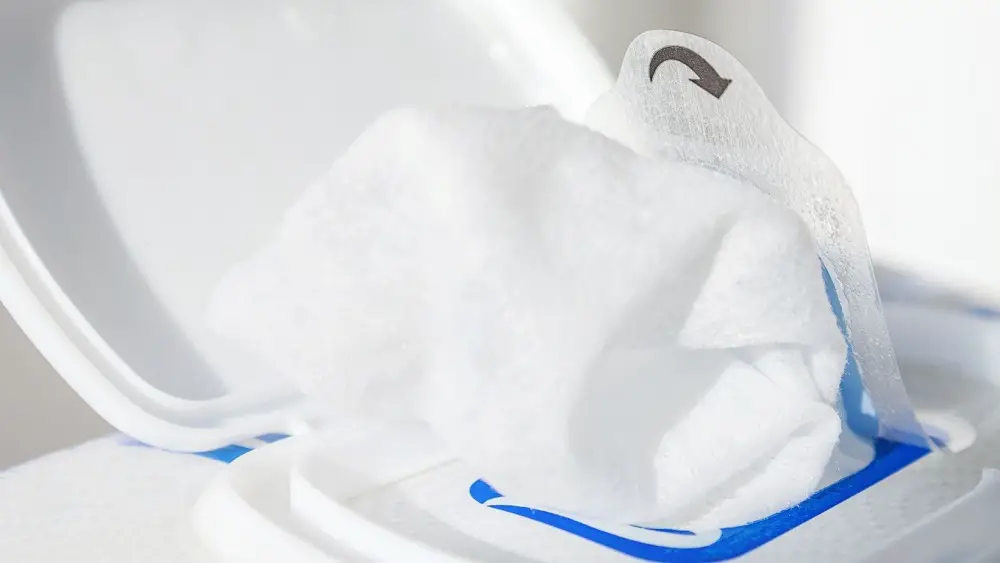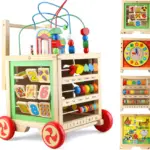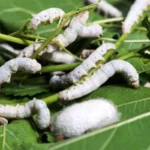One of the most treasured events in a person’s life is becoming a parent.
Most people anticipate the day when they can hold their child in their arms.
Both the mother and the father are ecstatic when their child is born. Taking care of the newborn, on the other hand, is not a straightforward thing.
Both parents bear a significant deal of duty when their child is born.
Because babies are unable to communicate, they are fully reliant on their parents for all of their needs, including nursing, bathing, dressing, and other essentials for the child’s learning and development.
Having to clean up a baby’s waste is a task that every new parent must undertake. In many cases, they are inexperienced.
Regardless, they develop the necessary skills.
Cleaning up a baby after diaper changes has been a lot simpler since the introduction of baby wipes.
The hassle of needing to bathe a baby after a trip to the bathroom has been alleviated thanks to baby wipes.
But with the ever increasing popularity of baby wipes in recent decades, we may find ourselves asking the question, “are baby wipes biodegradable?”.
In this article, we’ll explore what wipes are biodegradable and why, as well as what ‘biodegradable’ really means and if it’s safe to flush baby wipes down the toilet after use. Let’s take a look!
Can Baby Wipes Be Biodegradable?
There have been a lot of negative headlines lately about baby wipes. Have you ever questioned why baby wipes are such a big deal?
The explanation for this is that while the manufacturing of baby wipes has expanded to meet increasing demands, there is still no proper means to dispose of them responsibly.
Baby wipes come in a variety of names and varieties, and they’re made from a variety of materials, so they all have various chemical qualities. Baby wipes aren’t all biodegradable.
Approximately 80% of all wet wipes manufactured are not biodegradable, compostable or recyclable – which is a great shame.
You should be aware that, while some baby wipes are indeed biodegradable, they are not made with organic materials.
Natural fibres such as cotton, rayon, wood products, and bamboo are used to make compostable baby wipes.
Pretty quickly, this sort of baby wipe breaks down into tiny pieces.
Non-biodegradable baby wipes contain a significant amount of plastics, making them extremely difficult to break down.
However, all baby wipes, both biodegradable and non-biodegradable, are made with the same components.
The main ingredients in baby wipes include water, sorbates, phenoxyethanol, parabens, sodium benzoate, and glycerol.If you’re one of the rare people who cares about the environment, you’ll appreciate the benefits of using biodegradable baby wipes.
While it may be more expensive than non-biodegradable wet wipes, the desire to do the responsible thing for the environment outweighs the need to save money.
Can Baby Wipes Be Compostable?
A person who is worried about the environment will be particularly worried about the status of our planet.
Pollution is the quickest method to harm our ecosystem, yet there appears to be no worldwide remedy in sight.
However, we can all do our part to protect the environment.
We have no influence over what is created in corporations, but we do have complete power over what we buy.
Industry producers would be compelled to strategize if they avoided goods that harm the environment.
So no, baby wipes cannot be composted. Plastics and other synthetic materials are used in the baby wipes production process.
These fibres do not decompose into compost; instead, they disintegrate, leaving a large number of synthetic fibres in the ground. Under specific conditions, compostable items decompose.
Composting is faster than biodegradation, but only in the right circumstances.
When compostable materials decompose, they release non-toxic elements that serve as plant nutrients.
All of these are not applied to baby wipes.
Because baby wipes aren’t compostable, they wind up taking up valuable landfill space.
The various materials used to make baby wipes do not degrade. Perfumes, moisturisers, and even soaps are found in the wipe’s wet layer.
These are problematic in landfills because they are tough to break down. Antibacterial wet wipes typically contain isopropyl alcohol, which disrupts the microbial equilibrium in the compost pile.
Instead of acting as fertiliser, when these pollutants and toxins are discharged into the ground, they make the soil barren, making it impossible to cultivate crops.
Another reason why baby wipes aren’t compostable is because of what you used them to wash.
Mice and other harmful vermin might be drawn to the pile by human faeces, oil, and lubricates.
These invasive animals often do not have a positive impact on the environment.
When wet wipes are used with cleaning products that contain bleach or any other antimicrobial characteristics, instead of decomposing in the trash, they destroy all of the bacteria that would otherwise break down the wipes.
What About Water Wipes?

Wet wipes, water wipes, dry wipes, and potty training wipes are among the several wipes available.
It can be difficult to decide which sort of wipe to buy, but ultimately, you must select the wipe that is best suited to the task at hand.
Wet wipes, often known as water wipes, have been used to wipe up adult or generic messes.
They often include soaps, antibacterials, and other substances that will irritate a baby’s delicate skin.
Water wipes are available in two types: biodegradable and non-biodegradable. Non-biodegradable wet wipes outnumber sustainable wet wipes.
Yet compostable wet wipes take an extremely long period of time to decompose in landfills. Because baby wipes are a sort of wet wipe, they are made from the same materials.
The only distinction is in the amount of product content in baby wipes.
To prevent irritating the babies’ delicate skin, baby wipes are made with only a few chemical cleaners and anti-bacterial agents included in conventional wet wipes.
Wet wipes are usually made of paper, however synthetic fibres are often used to make them airy, smooth, and absorbent. The synthetic fibres boost the baby wipes’ sturdiness and suppleness.
Some wet wipes are made from a combination of recyclable and non biodegradable materials, such as rayon and polyester.
Due to the obvious mixing of the two components, these kinds of wet wipes do not entirely break down easily.
The wet wipes’ viscose biodegrades, while the rayon does not.
Can You Flush Baby Wipes Down The Toilet?
Some people seem to believe that the toilet has a powerful flush that will flush everything down. Wet wipes, or any other form of wipe, were never intended to be flushed in toilet bowls.
It is never a good idea to flush wet wipes down the drain. Certain baby wipes are labelled as flushable and compostable by some manufacturers.
Baby wipes, on the other hand, should never be flushed down the drain.
Because baby wipes and toilet tissue are not made of the same components, they will not degrade in the same way.
Since toilet paper is not tightly bound, the moisture used to flush it is capable of breaking it down.
However, because baby wipes are so securely connected, throwing them down the toilet will simply clog it.
Since wet wipes are not broken up, they clog both the toilet bowl and the drainage system. It’s possible that you’ll end up causing damage to your pipes and machines.
A plumber would just need to remove the obstruction in the toilet bowl and sewage if you flushed wet wipes down the drain.
When wet wipes are blended with oil, fat, and other filth in the drainage system, an unbreakable mess can result.
This might make it harder for the plumber to remove it, resulting in you spending extra money.
Final Thoughts
To get the most out of the environment, we must do everything we can to preserve it. We can’t fully enjoy our time on the planet if we pollute it.
All of us must become more ecologically mindful.
Therefore, if you have been negligent with disposing of undesired and used products, Now is the opportunity to act responsibly and improve the environment.






